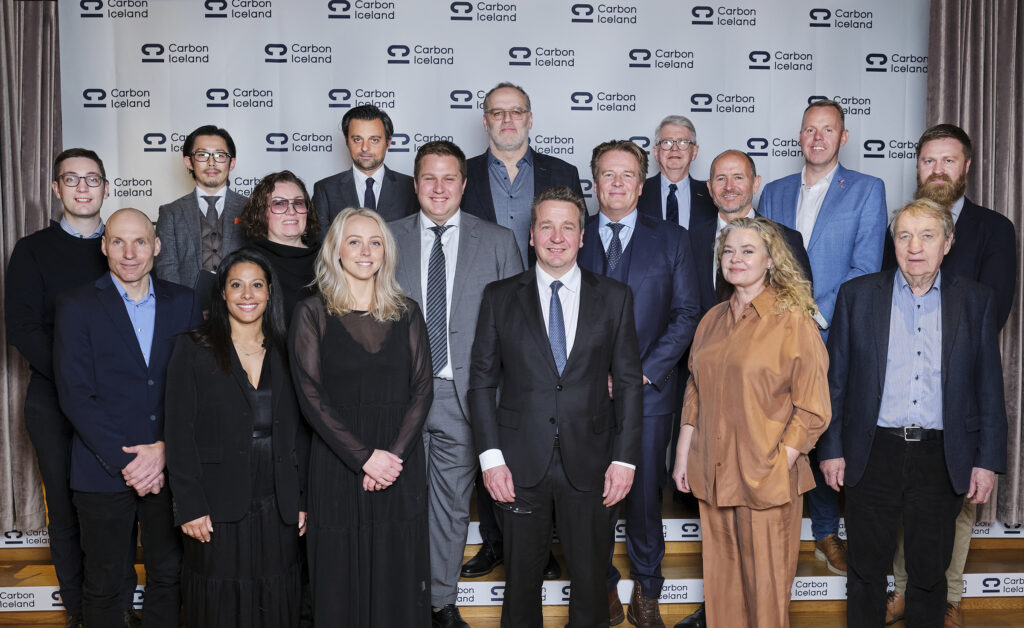Carbon Iceland is preparing capturing emissions from the largest smelters in Iceland, starting with Norðurál, a Century Aluminum Company and others to follow. This will allow Carbon Iceland to capture more than one million tons/year of CO2 that will be used to produce renewable fuel for the Icelandic fishing and maritime industries and other transportation vehicles and equipment.
The Carbon Iceland project will help Iceland significantly to reach emission reduction targets for 2030 and 2040 as agreed by the Icelandic government. Mitsubishi Heavy Industries, the world-leader in capturing technologies, is discussing to provide an optimal capture technology solution for the project. Also, Carbon Iceland is supported by Siemens Energy regarding the Project’s Energy System Design Optimization using its know-how around hydrogen production technology and Power-to-X.
A project introductory meeting was held in Reykjavik 17-18 October where the Minister of the Environment, Energy and Climate, Mr. Guðlaugur Þór Þórðarson, met with Carbon Iceland and its partners. The Minister celebrated this important step in Iceland‘s energy transition and the plan to prevent a significant amount of CO2 emission from entering the atmosphere. The Carbon Iceland team also met with the President of Iceland, Madam Halla Tómasdóttir to introduce the large capturing plan and to production of renewable fuel for Iceland’s industries.
Útgerðarfélag Reykjavíkur has already signed an off-take agreement with Carbon Iceland, securing renewable fuel for the company´s Factory Vessel, Guðmundur í Nesi RE-13, for years to come. Útgerðarfélag Reykjavíkur has been a leader in planning the new future with renewable fuels and has already completed substantial work on their vessel Guðmundur í Nesi RE-13, by modifying engines to be ready for the future of renewable fuels. Útgerðarfélag Reykjavíkur is pleased to sign this agreement with Carbon Iceland to support the project and to secure renewable fuel supplies for the future.
